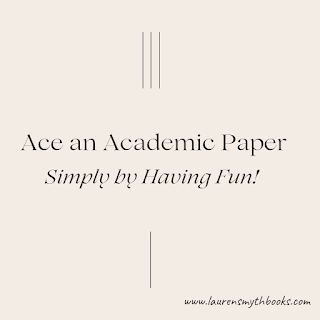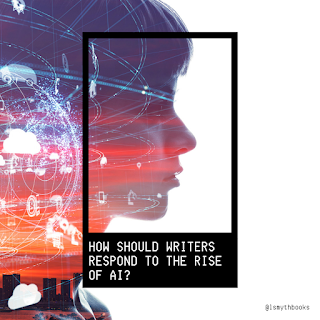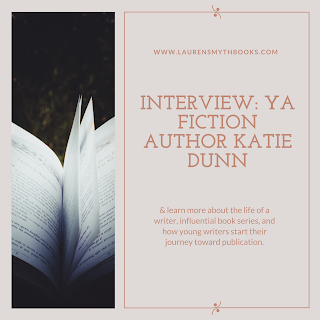Ace an Academic Paper - Simply by Having Fun
If your professor directs the class to write an essay on Napoleon's conquest of Russia, are you allowed to say anything funny? Or do you have to lay out the facts blandly, using thesaurus-worthy vocabulary that has been carefully scrubbed for any trace of personality?
Here's a general rule of thumb: If you don't want to read your paper, neither does your professor. If, on the other hand, you had a fantastic time writing it, your professor is much more likely to have a fantastic time reading it. It follows that they will be more likely to conclude their grading session with a smile and an A. Don't be afraid to slip in some style.
In my political journalism class, I was given a simple prompt: Write an essay on a medical experience you've had. (Fun fact: I'm an economics major. That explains why I'm writing about ... medical experiences in a journalism class?) The word count was limited to 400 words hard maximum, so every word mattered. The professor was looking for 1) a strong lede (first sentence) and 2) compelling style.
Game on. Here's what I produced.
On Getting Glasses
I came to get my eyes dilated, and I left with eighteen stitches down the back of my skull.
It happened because I decided to pace the hallway. The idea of someone dispensing liquid into my eyeballs made me feel nauseous, and I wanted to escape the crowded lobby where I had been told to wait while the drops worked. I should have listened and stayed put, but I never did trust eye doctors. (They have scary high eye-Qs.)
The world started to dim just before I reached the wheelchairs. If I had passed out then, all would have been well. Unfortunately, I stumbled about ten feet further before my vision tunneled.
Then I discovered my body sprawled on the floor, having scattered the wheelchairs with my head playing battering ram. It must have been a noisy fall, and several people had already found me. They were as helpful as the wheelchairs.
“Do you think she’s having a seizure?” one doctor asked, squatting awkwardly on his heels and adjusting his glasses for a better look at my face.
“No.” His colleague shrugged. “She’s not convulsing.”
“Is that -?” Somebody gasped. “Blood?”
A nurse in “business casual” scrubs, which looked appropriate for the set of Grey’s Anatomy but not for any real emergencies, slipped her hand under my head and yelped. “Blood!”
It was my mother, not the doctors, who called the paramedics. It was the paramedics, not the doctors, who told me that dilation occasionally causes drops in blood pressure that end with syncope. “You should get your retinas photographed,” they suggested. “That doesn’t require dilation.” An easy solution - if only someone had thought of it sooner!
A few days later, when I had recovered enough to remember why I had gone to the eye doctor in the first place, I called to ask for my glasses prescription. Mysteriously, they refused to provide it.
“Come get your eyes dilated,” they suggested. “Then we’ll give it to you. By the way, how are you feeling after your ... er, accident?”
I became, after that, a frequent visitor to their competitor across town.
After reading this essay, I hope you feel two things: Sympathy for my plight and at least a vague interest in the situation I'm presenting. Let's break down what this article really says, though, and I bet you'll find it a lot less fun. I could sum up the story in two sentences: "I went to the eye doctor and got my eyes dilated. That caused me to pass out and be taken to the emergency room, and I never ended up getting my prescription."
"Great," you'd say. "Now where's the fun part?"
But I didn't say that. I used casual language. I joked about having seizures. I made a horrifically bad pun. All this is allowed - and often encouraged - within academic writing. Students fear their professor's red pen, so they err on the side of stilted, formal language. Which is a shame. I can guarantee that professors would like to be entertained by high-quality, well-written papers!
Here are some specific tips and tricks for creating a paper that will make your professor smile.
1. Choose strong verbs. Notice that the doctor didn't "sit" - he "squatted." Those words have different connotations about the level of dignity required to perform the action.
2. Treat your first sentence like a first impression. Imagine handing your reader the first sentence of your essay. That's all they get to see. You want their eyebrows to shoot up when they see that one line, and then you want them to say, "Well, hurry up! Where's the rest of it?" That first sentence is called a "lede," which is a journalism word, but it's not just the rule for journalists. Novelists, beware: You only get a single paragraph to lure readers in.
3. Metaphors aren't just for Shakespeare. A metaphor is when you compare two things without using the word "like" or "as." In the essay above, "... having scattered the wheelchairs with my head playing battering ram" is a metaphor where "head" is compared to "battering ram." If I had said instead that "my head hit the wheelchairs," that would be much less interesting, and arguably less funny, than the metaphor. When you can't have a strong verb, have a strong metaphor.
4. Pounce on any opportunity to use irony. Let's ignore the technical definition of "irony" for the moment. There are two ways to popularly define it: 1) sarcasm, and 2) paradoxes, where something so unexpected (and often unfortunate) occurs that the situation becomes funny. When I use the word irony, I'm referring to the latter definition. The irony in this essay is, of course, the fact that after the dilation experiment had concluded and failed, I still didn't get my glasses. Irony is situational and can only be used where it actually exists, but if you spot an instance of irony, play it up.
5. Choose a Saxon word where possible, unless you want to describe something hyperbolically. That was a strange sentence, so let me explain. Saxon words are just your standard vocabulary of ordinary English words that are derived, more or less, from old English. Think of words like "dad." The Latinate equivalent of "dad" is "father," which has a much more formal connotation. This is typical of Saxon vs. Latinate word pairs (e.g., talkative vs. loquacious) - the Saxon word gets the point across, and the Latinate word does it in cursive and a French accent.
Saxon words are useful for storytelling. They're plain, they're understandable, and they get the job done. Latinate words do not make you sound smarter, contrary to popular belief. Rather, if used in the correct proportions to Saxon words, they emphasize themselves. The effect is typically amusing.
In the essay above, consider the sentence: "The idea of someone dispensing liquid into my eyeballs made me feel sick." Can you spot the two Latin words? If you said "dispense" and "liquid," you'd be correct. These two words stand out and place emphasis on the act of dispensing and what was dispensed, and the contrast with Saxon "eyeball" makes the reader aware, whether they know it or not, that liquid should never be dispensed into eyeballs.
Notice how the sentence changes if I say: "The idea of someone putting stuff into my eyes made me feel sick." There's no emphasis here, and it's about as bland as cold rice.
6. Cut out extra words. "That" is the worst culprit. If you see "that" anywhere in your essay, stop, drop, and consider whether you would say "that" if you said the sentence aloud. From above: "Do you think that she's having a seizure?" would be a case of unnecessary that.
Use the space you've created to drop in interesting words. Describe the doctor squatting "awkwardly." But:
7. Don't use too many adjectives or adverbs. Use strong language instead. By strong language, I do not mean profanity (although it is course policy that we are, in fact, allowed to swear in journalism class). I mean entertaining words. "Canteen," for example, instead of "metal water bottle." Or "gasped" instead of "said with horror."
Next time your professor assigns you a dry writing prompt, make it interesting. Decide you're going to have fun, and then stick to the plan! Don't be tempted by fat thesauruses, excessively formal language, or long sentences. Write in clear, plain English. Tell your reader what they want to know, and do it in a way they'll enjoy. That's the secret sauce for acing your next paper.
Like this article? Get more info, entertainment, and reviews at:
- Medium



Comments
Post a Comment